10 Essential Questions Every Hiring Manager Should Ask an IT Recruitment Agency

Recruitment agencies can be invaluable partners in building a high-performing team.
knowledge, networks of candidates, and expertise in navigating competitive hiring environments. But not all agencies operate in the same way or deliver the same results.
"As a hiring manager, engaging a recruitment agency should feel like bringing in a trusted extension of your HR function — one that represents your business with the same care you would."
That’s why it’s crucial to ask the right questions before you commit. These conversations help you separate the agencies that will genuinely deliver value from those that might not be aligned with your needs. They also set expectations early, creating transparency around process, cost, and outcomes. Below are ten key questions every hiring manager should ask, with insights into why they matter and what to listen for in the answers.
1. How do you source and vet candidates for my roles?
Not all candidate pipelines are created equal. Some agencies rely heavily on job boards and active applicants, while others maintain deep networks of passive candidates who may not be actively looking but are open to the right opportunity. As a hiring manager, you need to know whether your recruiter has the reach and resources to find the calibre of candidate you require.
Equally important is how they vet candidates. Do they conduct structured interviews, technical tests, reference checks, or background screening? Understanding their process ensures you’re not flooded with CVs that haven’t been properly assessed, saving you time in shortlisting.
2. What is your placement success rate, and how quickly can you typically fill a position like mine?
Agencies often measure themselves on two key metrics: time-to-fill and retention rates. A strong partner should be able to give you averages for your industry or role type. For example, if you’re hiring for a niche technical role, expect a longer timeframe than for a general administrative role.
Asking this question helps you benchmark performance. If an agency avoids the question or has no data, it may be a red flag. A reputable firm should be transparent about both successes and limitations.
3. How do you assess whether a candidate will be a good cultural fit for my organisation?
Technical skills are only half the story. A candidate who doesn’t fit your culture can quickly become disengaged, leading to turnover and lost productivity. A good recruitment partner should be able to articulate how they evaluate soft skills, values, and behaviours alongside technical competence.
Listen for methods such as behavioural interviewing, psychometric testing, or structured questions about teamwork and communication style. Better yet, agencies that take time to understand your business culture will be able to screen candidates with your environment in mind.
4. What is your pricing structure, and do you offer any guarantees if a hire doesn’t work out?
Recruitment can be a significant investment, especially for senior or specialised roles. Different agencies may charge differently: a percentage of salary, a flat fee, or an hourly margin for contractors. Understanding the pricing model upfront avoids surprises later.
Guarantees are equally important. Many agencies offer a replacement guarantee if a hire leaves within a probationary period. This demonstrates confidence in their ability to deliver and gives you protection should the fit not be right.
5. How will you keep me updated throughout the recruitment process?
Communication breakdowns are one of the biggest frustrations hiring managers experience with recruiters. This question clarifies how often you’ll be updated, through what channels, and by whom. Some agencies provide weekly progress reports; others offer real-time dashboards.
The key is to set expectations. If you want quick updates when a shortlist is ready or immediate notice if a candidate drops out, say so. A good agency will adapt their communication style to match yours.
6. How many candidate profiles can you provide me with, and how often will you refresh them?
Hiring managers often struggle with the balance between quality and quantity. Too many CVs can be overwhelming; too few may suggest a shallow search. This question helps set realistic expectations about how many candidates you’ll see and how frequently the shortlist will be updated if no one is the right fit.
The best agencies won’t promise endless CVs. Instead, they’ll commit to a manageable number of high-quality, carefully screened candidates, refreshed as the search progresses.
7. Do you specialise in my industry or in IT Recruiting for roles like the one I need to fill?
Sector knowledge can make or break a recruitment partnership. An agency that specialises in your industry will understand the nuances of the market — from salary trends and in-demand skills to common challenges with retention.
If you’re hiring a software engineer, for example, a recruiter with a strong tech desk will likely already know suitable candidates and understand the technical requirements. By contrast, a generalist agency may take longer to get up to speed.
8. Can you provide references or case studies from other clients you’ve worked with in similar situations?
Just as you’d check a candidate’s references, it’s fair to check your agency’s. Ask for case studies, testimonials, or the chance to speak with another client. This gives you real-world evidence of their performance and professionalism.
Look for stories that mirror your situation — for example, filling multiple contract roles quickly, or successfully placing a senior executive in a competitive market.
9. What screening and selection process do you use before presenting candidates to me?
The last thing you want is to waste time interviewing candidates who don’t meet your requirements. This question ensures you understand how the agency filters applicants before they reach you.
Strong recruiters will talk about in-depth interviews, skills testing, reference checking, and cultural alignment assessments. If an agency simply forwards resumes without thorough screening, you may end up doing much of the work yourself.
10. How will you represent my company and employer brand to potential candidates?
Every interaction a recruiter has with candidates shapes how your organisation is perceived. You want assurance that the agency will represent you accurately and positively. Ask how they describe your business, what information they provide to candidates, and how they handle questions about culture, benefits, and career development.
The goal is consistency. A strong recruitment partner should be able to articulate your employer value proposition in a way that attracts top talent while staying true to your brand.
Final Thoughts
Choosing the right recruitment agency is not just about finding someone who can send you CVs. It’s about forming a partnership that adds strategic value to your hiring process. By asking these ten questions, you create a clear framework for evaluating agencies, ensuring you work with one that understands your business, respects your brand, and delivers results.
These questions also establish accountability. When an agency knows you are looking for transparency on success rates, cultural fit assessments, and communication methods, they are more likely to operate at a higher standard. In a market where top talent is scarce and competition is fierce, that edge can make all the difference.
The next time you engage a recruitment agency, keep these questions close at hand. They’ll help you cut through the sales pitch, get to the heart of what matters, and choose a partner who will help you build the team your business deserves.
If you’re unsure whether your current recruitment agency is adding real value, it’s time to ask the right questions — and find a partner who does.

